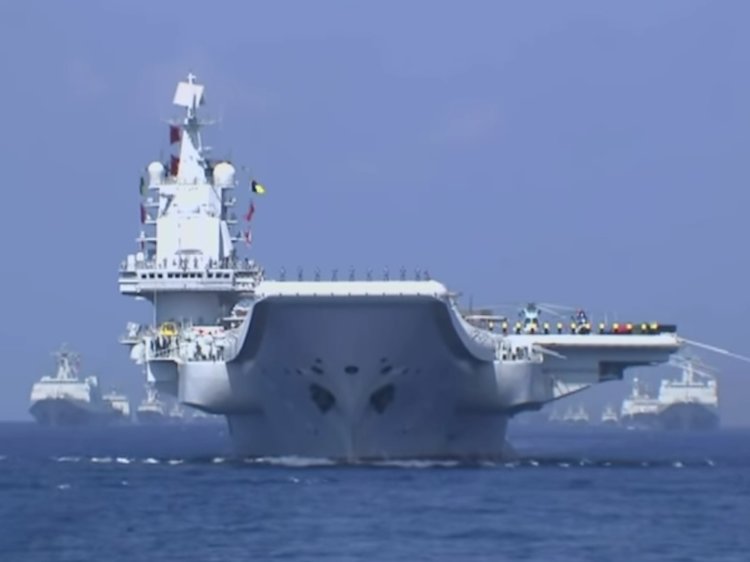China’s intentions with Taiwan
April 14, 2018 | Expert Insights

On 18th April 2018, Beijing has scheduled to hold live-fire drills in the Taiwan Strait. It is a move that is likely to further increase tensions between China and Taiwan. Experts have noted that this is also a message to Washington.
Background
While Taiwan is considered a province in “Greater China,” it is largely an independent state. The ambiguity can be traced back to 1927, when the seeds were sown for a civil war between Kuomintang (KMT)-led government of the Republic of China, and the Communist Party of China (CPC). Both parties wrestled for control for China. While the civil war lasted between 1927 and 1950, the main phase is considered to be from 1945 to 1949.
The war came to an end when CCP captured Beijing. The leader of CCP, Mao Zedong, then officially declared the formation of People’s Republic of China. The leader of the opposing faction, Jiang Jieshi fled to Taiwan. It is here that he declared the formation of Republic of China (ROC). PRC has repeatedly used the threat of force to ensure Taiwan (ROC) never declared independence. As far as mainland China is considered, Taiwan is a rebel force well within China.
Despite the controversy that surrounds Taiwan, the region itself is economically robust and it is one of the biggest traders in Asia. It is a leader in the field of computer technology. And the province pursues independent informal relations with other countries.
It’s most influential friend in world politics is USA, which has supported it for years while also adhering to the “One China” policy.
On March 8th, China’s foreign minister declared that there is only ‘One China’ and Taiwan is a part of it. Taiwan plays an inalienable part of the ‘One China’ policy in expectation that it will be reunited with the mainland. Having said so, Taiwan has a democratically elected President, laws and its very own armed forces. A major fallout could be the break in economic trade and foreign relations.
Analysis
In 2017, Chinese President Xi Jinping kept iterating the importance of the “One China” policy. During his three and half hour address at the 19th National Congress in China, he repeatedly spoke about safeguarding national sovereignty. He said, “[We will] resolutely safeguard the national sovereignty and territorial integrity and will absolutely not tolerate the tragedy of the country’s split. Any activity aiming to split the motherland will be firmly opposed by all the Chinese people. We have a firm will, sufficient faith, and adequate capacity to defeat any intention of “Taiwan independence” in any form. [We will] never allow any person, any organization, any political party, at any time, in any form, to separate any piece of Chinese territory from China.”
Tensions between Taiwan and China have increased even further in the recent months. China’s Premier Li Keqiang has now signaled yet another stern warning to Taiwan. In a report to the opening session of the annual National People's Congress in Beijing he said that China “will never tolerate any separatist schemes" in Taiwan.
In a move that is likely to further increase tensions between China and Taiwan, Beijing has scheduled to hold live-fire drills in the Taiwan Strait next week (Wednesday). This comes right after President Jinping oversaw the biggest naval exercises in the country's history recently.
Alexander Huang Chieh-cheng, an international relations professor at Tamkang University, said that the drill is scheduled purposefully to send across a clear message from the mainland. “The exercise is going to take place when Tsai, who is also Taiwan’s commander-in-chief, is out of the office on an overseas trip,” he said.
Song Zhongping, a former member of the PLA’s Second Artillery Corps also weighed in on the development noting, “It’s likely the Liaoning carrier strike group will take part in the Taiwan Strait drill, presenting a direct and powerful deterrence to Tsai’s administration and the island’s independence-leaning forces.”
Experts also suggest that this is message to the Trump administration. New National Security Advisor John Bolton might be visiting Taiwan soon. He might be visiting the new American Institute in Taiwan. “The live-fire drills would almost certainly be intended to be seen as a response to the Trump administration’s new initiatives over Taiwan,” Steve Tsang, director of the SOAS China Institute at the University of London, said. “It is probably intended more for Taipei than Washington as the military exercise cannot intimidate the US but can get Taipei to think of the security dilemma, which is that the more Taipei seeks to secure US support, the more Beijing will do to make Taipei feel less secure.”
Assessment
Our assessment is that much of Jinping’s vision for China relies on him resolving the problems arising from Taiwan and its resistance to re-unification. China has often stated that the unification will definitively take place someday and that the region was willing to use force if needed to achieve it. Public opinion surveys show most Taiwanese oppose unification. This could result in a deadlocked political crisis.
This is also a warning to the US to adhere to the One China policy.








Comments